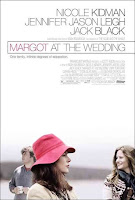or
"The Stories We Tell Ourselves"
"Hello. This is the beginning. The beginning of a film called "The Wonder." The people you are about to meet—the characters—believe in their stories with complete devotion. We are nothing without stories. And so we invite you to believe in this one. It is 1862. We've left England bound for Ireland. The Great Famine still casts a long shadow, and the Irish hold England responsible for that devastation, There, sits a nurse. An English nurse. Traveling all on her own. And it's with her, we begin."
Most movies don't start out this way, telling you that what you're seeing is a movie. One would assume that any semi-intelligent person would figure that out. In The Wonder, director Sebastián Leilio even takes the film down to its studs, showing you the set, lights and stage-framers (even a fan or two) while telling you to go with it before going through "the fourth wall." It's a story. And this is make-believe, despite the deliberateness of the verisimilitude.
It's nothing new (just rare). Laurence Olivier won an Oscar Best Picture by starting his Henry V as a stage play and then moving it out to become a "movie-movie" on location. How many TV anthology shows had a host walking onto the set to address the audience?
But, this discomfort of "looking behind the curtain" does not last long; with the second shot, we're back to movie-normalcy, following the journey of Nurse Elizabeth Wright (Florence Pugh) to her location of employment in rural Ireland just past the Potato Famine. She has been hired by a village council of the town who are looking for a medical observer of their local miracle: an 11 year old girl, Anna O'Donnell (Kíla Lord Cassidy) has not eaten for four months (but still appears healthy) subsisting on just water and, as she says, "manna from Heaven."
The girl receives visitors from nearby villagers who seek her out as a religious icon. The council, all men (of course), seek answers: the medical doctor, McBrearty (Toby Jones) is out of options; the parish priest (Ciarán Hinds) needs validation, councilman John Flynn (Brían F. O'Byrne) is fervently religious, and believes the child is a saint. Nurse "Lib" herself, having served as a nurse in the Crimean War, and having lost a child and a husband, has no illusions and no agenda and her dispassionate analysis will serve as a "control" to the watch of Sister Michael (Josie Walker), lest there be any religious bias. The council is wary of scandal as local boy Will Byrne (Tom Burke), whose pursuit of a journalism career allowed him to escape the fate of his family during the Famine, is reporting on the story.
Nurse "Lib" is cold and dispassionate, per the requirements of the job of witness, but she can't help empathizing with the girl, while being wary of the council's various agendas. "Lib" has issues, too. To fight off the sorrow of losing her child, she consoles herself with laudanum until it dulls her into a sleeping stupor. It's another reason, she is drawn to her charge, and as the child starts getting weaker, Elizabeth starts to get more pro-active, defying the religious beliefs of her parents and the preoccupations of the council.
That's just one of many conflicts occurring in The Wonder: Ireland vs. England, rural vs. urban, medicine vs. dogma, fact vs. superstition, things as they are vs. things as perceived, faith vs. zeal, and conscience vs. duty. But, to the nurse, it is just one conflict: life vs. death, and no other arguments can dissuade her that that is the priority, even if it makes her a pariah in the town. And Florence Pugh (once again) surprises with just how good she is at communicating the thoughts required in the heads of her characters. She makes it look so genuine, unpracticed, unrehearsed, and simple, but no less passionate. She is one actress who one should not take for granted that she will energize whatever project she undertakes, or startle with how ingenious she is. She reminds me of Vanessa Redgrave, how precise, yet unconventional and right she makes her characters.
Special mention must be made of the work of cinematographer Ari Wegner (she shot The Power of the Dog, and seems to specialize in finding the beauty in the perverse and making horizons pop off the screen), who takes Leilio's tableaux and bends light around them like Rembrandt or Vermeer, edging light around faces just enough to expose the unsure flick of an eye or the subtle setting of an expression, no matter how few foot-candles are in the room. There are moments that you just want to put a frame around, so intricate is the lighting in places.One sympathizes with the movie and its protagonist's goal—to find the Truth in a chaotic blur of fictions and motivational feints, like a mystery story. But, then, one can relate, as one looks for unassailable facts in a world where faith is enough no matter the dangers of opinion, interpretations, deflections and outright deliberate mendacity.





















































